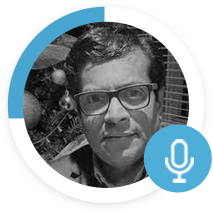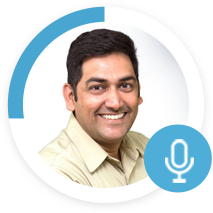Sometimes it's a little better to travel than to arrive
- Zen and the Art of Motorcycle Maintenance
Prologue
There are some goals we pursue relentlessly and some we drop on the way. Is there a reason for that?
I have always been a voracious reader, but never went about it methodically. Whatever I could lay hands on would be read, was my approach. Around 2016, I tried to change this with some discipline on what should I read and how to go about it. This also meant, making a meaningful list and keeping it handy.
The goal of 52 somehow crossed the mind, why not a book per week? This was also to get an answer to the question I started the article with.
I Started with few books on Safari Books at the place I was working at that time, continued with buying some books, borrowed a few from friends when they recommended and most importantly started on the audio. Bangalore traffic and my 2+ hour commute per day was a blessing in disguise for this activity!
I am listing the books I completed reading/listening with a small explanation about the book and what was interesting for me. The books are in no specific order of priority or the order I have read them, unless mentioned.
I intend to do an elaborate write-up of books I liked a lot and discussed with some of my friends. Watch out for that!
The List
1. Management 3.0: Leading Agile Developers, Developing Agile Leaders by Jurgen Appelo.
- The title itself was an invitation for me and the depth of research throughout the book made it even sweeter. Contains lot of practical and realistic tips (backed by research) on managing agile teams.
2. SAFe® 4.0 Reference Guide: Scaled Agile Framework® for Lean Software and Systems Engineering by Dean Leffingwell
- As a SAFe Program Consultant (SPC), this book is a must for us to teach the class. The book decomposes every aspect of framework and is written by the creator of the framework.
3. The Five Dysfunctions of a Team: A Leadership Fable by Patrick M. Lencioni
- One of the most quoted books about team dynamics and rightly so. A fable style novel makes it interesting read.
4. Leading Apple With Steve Jobs: Management Lessons From a Controversial Genius by Jay Elliot
- From the man who has seen Steve from a very close quarter. Busts a lot of myths about Jobs and creates a few more. An interesting read about Jobs.
5. The Steve Jobs Way: iLeadership for a New Generation by Jay Elliot; William L. Simon
- Steve Jobs again and a tale of his leadership and style and his uncanny ability to see the future.
6. The Principles of Product Development Flow: Second Generation Lean Product Development by Donald G Reinertsen
- Everything you need to know about Lean Product Development. The information contained is phenomenal and hence not a “one-sitting” read. The book assumes the reader at a certain level on manufacturing, management and economics and takes it from there. Makes a clear distinction of Product Manufacturing vs Product Development.
7. Switch: HOW TO CHANGE THINGS WHEN CHANGE IS HARD by Chip Heath and Dan Heath
- The book is a practical guide on how to affect a long lasting and sticking change even in the face of adverse situation. Through the examples authors drive their point. Absolutely relevant to the problems we face on a daily basis.
8. The Lean Machine by Dantar P. Oosterwal
- Harley Davidson’s story of how it had to evolve to stay on top and become a “learning organization”. Brings a lot of practical examples on implementation of lean product development process. Practitioners view point is the highlight of the book.
9. Out of the Crisis by Edward Deming
- Seminal book by Deming, very famous for clearly bringing out his views on quality, management and statistics. A must read for anyone who cares for quality and how to implement good practices around that irrespective of the industry one works for. Written in simple and direct language, this book is a treasure trove of information.
10. User Stories Applied: For Agile Software Development by Mike Cohn
- Typical Mike Cohn. Easy, simple to read, pragmatic, gives a lot of choices and examples. Recommended for any one working as an agile team member, drives across the point of how to write stories effectively and the rationale behind this simple and powerful technique.
11. Coaching Agile Teams: A Companion for ScrumMasters, Agile Coaches, and Project Managers in Transition by Lyssa Adkins
- This was a repeat reading. A comprehensive guide to agile coaches while being framework agnostic. The book explores and explains how to apply the skills from professional coaching in an agile environment. Practical approach for the situations on mentoring, training, facilitating and coaching makes it a must have book for anyone working with agile teams.
12. The Dalai Lama's Book of Wisdom by The Dalai Lama
- Teachings of Buddhist philosophy and Dalai Lama’s life learnings in a simple narrative. A thought-provoking book on compassion and meditation.
13. Abundance: The Future Is Better Than You Think by Peter H. Diamandis, Steven Kotler
- The authors put a case on the abundantly available resources (like sun-light) and how can they be harnessed by us for a better future. A perfect book for the naysayers with lot of data provided and the scientific achievements in that direction.
14. Influence by Robert Cialdini
- A good book on how to persuade people and influence them ethically for a win-win situation. Mixes business with psychology to get the best results while influencing.
15. Thinking,Fast and slow by Daniel Kahneman
- After reading this book, you will start thinking about the way you have been thinking. The Nobel laureate, Kahneman distils a lifelong research on conscious and unconscious thinking. Taught me a great deal on why we make certain choices, where do we fail in analyzing the data we have and our biases.
16. Nine Things Successful People Do Differently by Heidi Grant Halvorson
- Hugely popular book backed by research and a very short read. Puts a lot of emphasis on doing things. Leaves you with lasting impression.
17. The DevOps Hand Book by Patrick Debois; Gene Kim; Jez Humble;John Willis
A master piece on practicality of DevOps and its implementation. The book looks at the values, principle, practices and tools used in DevOps with examples from practical implementations for everything the authors talk about in the book. Icing on the cake for me was being part of one of the examples (Dojo at Target).
18. MASTERY by Robert Greene
- The book answers the question of whether mastery in any topic is an in-built quality of a person that can’t be changed or is it something else. The carefully crafted book talks about some of the greats like Da Vinci and Darwin, and their perseverance. Talks a great deal about apprenticeship and its importance.
19. Tomorrow land by Steven Kotler
- A very positive look at the possibilities of science and a great future. This book is a series of essay articles on technological innovation in a variety of fields. Takes a look at the moral questions arising from the innovations as well.
20. OUTLIERS by Malcolm Gladwell
- Is it possible to find a pattern in success stories? Like the Canadian hockey players born in the first half of the year are successful, the opportunities that Bill Gates got. 10,000 hours that was talked about in “Mastery” makes a comeback here as well. Gladwell discusses the factors and the support required for success in a honest and direct way.
21. MAN’S SEARCH FOR MEANING by Victor Frankl
- One of the gripping reads. The author, a psychiatrist/neurologist was a prisoner in Nazi Germany and his quest to understand what is meaning of life even in captivity makes for the subject of this book. He also talks about “logotherapy” in this book. If you start this book, you can’t put it down till the end.
22. Zero to One by Peter Thiel
- Its easier to copy something and make it one to N, but zero to one is what makes the startups, and the enterprises which defines the future are made up of. The author, who is a serial entrepreneur and investor is no stranger to this type of world and the book is an interesting read.
23. ANTIFRAGILE by Nassim Taleb
- Antifragile is neither fragile nor robust but thrives on disorders and becomes better. What about benefiting from volatility? The no nonsense thinker in Nassim Taleb speaks about risks, luck, probability, uncertainly and knowledge in a very lucid manner. You can like the theories or hate it, but can’t avoid noticing the implications.
24. MINDSET by Carol Dweck
- The power of mindset is discussed in this book on success at school, arts, work etc. She talks about fixed mindset vs growth mindset through the book and proves through research that abilities can be developed. An essential read for teachers, parents and coaches.
25. Tribal Leadership by Dave Logan, John King and Halee Fischer-Wright
- What are the ingredients for a high-performance culture? Does the interaction between people differ in an innovating organization? The answers lie in Tribes and the leader of that tribe. The authors identify a path to 5 stages of Tribal Leadership which can help organizations thrive in any condition.
26. The Lean Startup by Eric Reis
- More than the money at hand, for every startup the dilemma is to understand what product works in which condition. Most often than not, the seemingly great ideas flounder to flourish. In this context, how can a startup learn quicker, and pivot as necessary is the central theme of the book. Eric puts his learnings in form of a book explaining the finer nuances to a successful startup. Great read for anyone who cares about being an entrepreneur.
27. To Kill a Mockingbird by Harper Lee
- A classic of modern American literature with a warm story telling. It’s the only book the author has written and a Pulitzer prize winner. In 2006, the British librarians ranked this book ahead of Bible as a book every adult should read before they die.
28. The Fountainhead by Ayn Rand
- One of the best-selling books which talks about Individualism and philosophical about the ideal man.
29. Death by Meeting: A Leadership Fable, About Solving the Most Painful Problem in Business by Patrick Lencioni
- A fable on the most dreaded topic in corporate world. While the title suggest something, Patrick helps the readers how to make meetings effective and enjoyable.
30. Creativity Inc by Ed Catmull
- Pixar and Toy Story changed the world of animation forever. The book describes the principles and practices on how to lead people to get the outcome of joy, originality and a sustaining creative culture. Per Ed Catmull this book is “an expression of the ideas that I believe make the best in us possible”
31. Leading Change by John P Kotter
- A master piece by John Kotter on effecting a transformation. His 8 step process is widely used in the industry and the book details the rationale behind those. A practical guide and must have book for managers,leaders and coaches.
32. The Art of Public Speaking by Dale Carnegie
- Dale Carnegie is a known name in the industry on presentation,relationship in business and public speaking. The book details and give some simple, practical tips on public speaking. A good one to go through.
33. When breath becomes air by Paul Kalanithi
- Hard to differentiate if it’s a memoir of a dying doctor or a philosophy of life and death. Dr.Paul Kalanithi could have been an accomplished author if not the neurosurgeon he was. The book will leave anyone teary eyed.
34. The Tipping Point by Malcolm Gladwell
- Malcolm Gladwell’s best seller describes the phenomenon of successful social epidemics. He describes the 3 rules or agents of change as Law of Few, Stickiness factor and power of context. It tries to explain some of the ideas, products and behaviors that spread like a virus.
35. Agile Software Requirements by Dean Leffingwell
- Dean’s seminal work explaining what would later be called as “Scaled Agile Framework (SAFe)”. The book examines the product development from Agile, Lean and Management view point and combines best of all. A complete guide on anyone trying to scale agile from a team level to program and portfolio levels.
36. Hitchhiker's guide to the galaxy by Douglas Adams
37. The Restaurant at the End of the Universe by Douglas Adams
38. Life, the Universe and Everything by Douglas Adams
39. So Long, and Thanks for All the Fish by Douglas Adams
40. Mostly Harmless by Douglas Adams
- The Trilogy in five parts as the author has put it, Hitchhiker’s Guide to the Galaxy or popularly known as H2G2 is a comedy science fiction which has a cult following. Per an article, this series has inspired more people to take up science and space related exploration than any university can do! The marvelous stories with impeccable British humor is certain thumbs up from me.
41. SAFe® 4.0 Distilled: Applying the Scaled Agile Framework® for Lean Software and Systems Engineering by Richard Knaster; Dean Leffingwell
- A thorough book for understanding the Scaled Agile Framework or SAFe. A must read for anyone teaching or implementing SAFe.
42. The Rollout by Alex Yakima
- A story is any day better than just the theory. Alex’s book takes that approach and narrates a SAFe implementation through a practical scenario of thought to implementation with a bumpy road of failure and success. The flow of the story is so riveting, as a member of agile team, you might be able to identify yourself in that story based on your role.
43. Sapiens by Yuval Harari
- I would read this book just for the narrative style! Answers the question of how we humans were/are able to rule this world and what makes us collaborate at scale. Every sentence in the book makes you think.
44. The secret by Rhonda Byrne
- Self-help book based on the belief of law of attraction, which claims thoughts can change one’s life directly. The book has sold 30 million copies. While the book is more theoretical and explanation oriented,helps on optimism and visualization.
45. Black Swan by Nassim Taleb
- Rare and unpredictable event like a wall-street crash have a huge impact on our world and our own lives. The book stresses on the fact that iinstead of trying to predict everything that happens in our life, we should embrace uncertainty and make the most of it. Read this book along with Antifragile by the author.
46. Deep Work: Rules for Focused Success in a Distracted World by Carl Newport
- In an increasingly connected and distracting world, how to make sure we do quality work rather than some shallow work. Carl Newport uses principles of psychology and neuroscience to drive home the point of focused work free from all other distractions. A very timely book for corporations who believe multitasking and a always connected world.
47. Animal Farm by George Orwell
- A savage attack on Stalin and timeless satire of idealism deceived by power and corruption, this book is known to be a world famous classic. The reader can easily relate the book to most in powerful positions who take advantage of others and manipulate them.
48. Nineteen Eighty Four (1984) by George Orwell
- War is Peace, Freedom is slavery and Ignorance is Strength. The three tenants of George Orwel’s book written in 1949 looks at a world of 1984 with a dictator as a ruler and the propaganda that runs deep in the lives of people. A fine balance between fear, satire, horror and thrill.
49. Start with Why by Simon Sinek
- Simon Sinek’s golden circle needs no introduction and the book explains in detail why “starting with why” is more important than how and what. The examples he gives, makes it easy for the reader to understandthe theory behind golden circle.
50. SCRUM: The art of doing double the work in half the time by Dr.Jeff Sutherland
- I read this book towards the end of the year. As an agile coach, I use Scrum at a team level. Do I understand the framework right, was the question I wanted to address. The book is a thorough reading outlining the Scrum co-creator’s thoughts on all aspects of Scrum with practical explanations. It was fascinating at the same time to understand the sources from which he has taken the inspiration to create Scrum.
51. Zen and the Art of Motorcycle Maintenance:An Inquiry into Values by Robert M.Pirsig
- One of the most interesting and influential books, an examination of how we live and how to live better. The book talks about science, philosophy and quality with an interesting narrative. I have taken the quote from this book to start the article. Changes your perspective on how you look at anything.
52. Quiet by Susan Cain
- Fittingly, the last book I read for the year. A phenomenal book, which talks about the dilemmas an introvert faces in a world that values talking and can’t stop talking. Laden with lot of studies, the book helps understand what your style is, how to nurture that style and what type of work/job suites you. A must read by every manager/leader to understand, empathize and utilize the inherent skills of every person on the team.
What Next?
Will I read the same number of books for next year or less or more? I don’t have a target now. While reading the books, there were few weeks I read almost a book per day and sometimes there were prolonged breaks because of work, travel or reading fatigue. Finally, it’s not about the number but the quality and knowledge you assimilate and can utilize in your life.
Get the reading list from friends/colleagues and business leaders you admire. Many of them share their interest on social platforms. Read about that book, and if interests you, add to your list.
I intend to read a lot, the number I am not too sure and don’t want that as a parameter as well.





